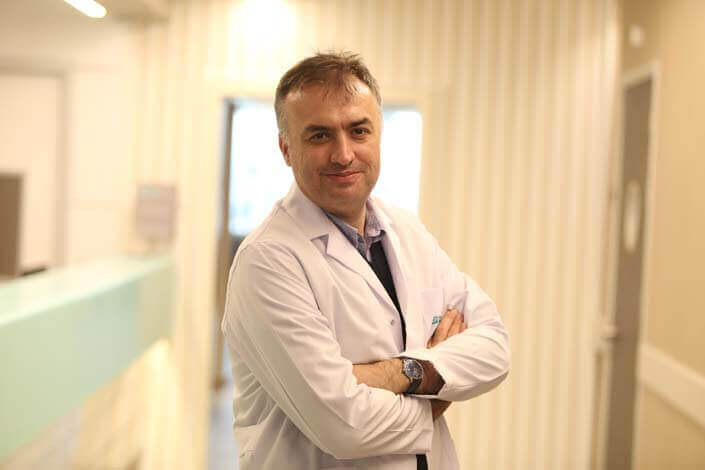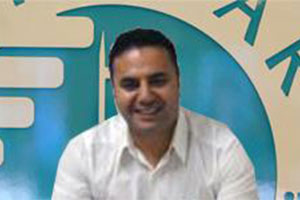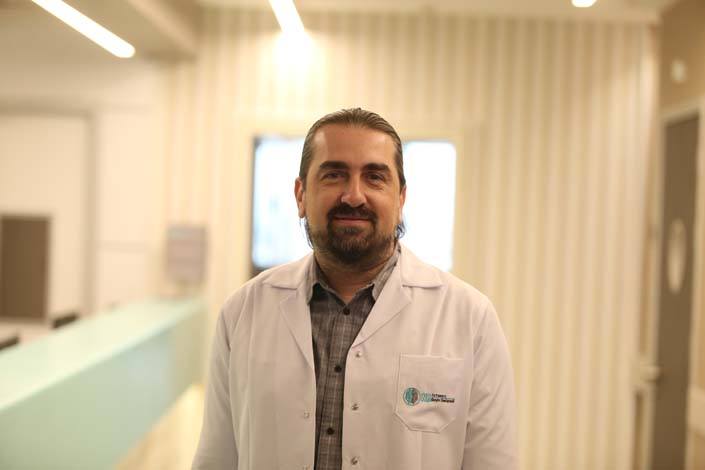Headache
What are the causes of Headache?
How many types of headaches are there?
There are many diseases that cause headaches. The most common type of headache in the community; tension type headache is a headache caused by nerves, stress and anxiety. This type of headache is often perceived as a pain surrounding the head. Tension-type headaches are common in the afternoons and may initially respond to painkillers but may become unresponsive. In patients who take long-term pain relief, depending on painkillers and diseases can be seen. Therefore, it is recommended to treat this type of headache with specific treatment approaches rather than painkillers. These treatment approaches may include medications, relief exercises and psychotherapies to reduce tension and anxiety.
Another common cause of headache is migraine. Migraine is a common disease in the community. It usually causes unilateral and throbbing pain. Together with nausea and vomiting may occur. Migraine pain can be very severe and therefore causes serious falls in the person's school and work performance. Special painkillers called triptan can be used in the treatment of migraine. However, if people experience frequent attacks, special migraine medications can be used if problems arise in work, school and family life. These drugs are called anti-epileptics called blood pressure medications and epilepsy drugs called beta-blockers.
Another common type of migraine is migraine associated with menstruation. Some women have recurrent migraine attacks during each menstrual period. Preventive treatment approaches can be applied in the treatment of such attacks. For example, migraine medications can only be prevented by menstrual pain using menstruation.
The third common type of headache is neuralgia. These types of pain are usually short-term but very severe pain which is perceived as electric flash. The most common type is trigeminal neuralgia. The person feels a very short period of time but very annoying electrons. The first choice in the treatment of this type of pain is epilepsy drugs. However, if the treatment does not benefit from this treatment, the related nerve can be cut. Nerve blockage of the nerve that causes pain is anesthetized by local anesthetic. Thus, long-term interruption of pain can be achieved.
Apart from these reasons, we see many diseases that cause headaches. For example, increased blood pressure may cause headaches. Treatment of this condition is effective blood pressure treatment. Neck hernia, especially in the back part of the head can make pain. There are also headaches which occur as a side effect of the drugs used. It is expected that all these diseases will be examined in a meeting with a neurologist and the patient will be diagnosed correctly.
I have a headache, should I be worried?
If you have pain bearing one or more of the following features, go to the neurologist
Headache, especially for a new type of headache,
If you have severe headache in your life,
Waking from sleep by night pain, nausea, vomiting. In this case, you should be asked for a brain film. Headache may be a rare predictor of brain tumors or bleeding. In this case, rapid brain imaging (MR or tomography) should be done.
Is it right to use continuous painkillers for headaches?
Painkillers are generally considered to be innocent drugs. But they can cause irreversible damage to organs such as kidneys and stomach. Therefore, long-term and regular use of painkillers should be avoided. Especially if you feel the need to get more than one pain medication per week for your headache, you should talk to a neurologist.
Is it true that migraine patients do not have a definitive treatment and migraine patients suffer pain all their lives?
The community is suffering from migraines and other severe headaches. Migraine is a condition that can be seen in both youth, middle age and old age. However, some people may complain about headaches during certain periods of life. For example, migraine attacks are more common in their 20s and 50s. For this reason, migraine may be accepted as a life-long disease but its severity varies according to age.
There is no treatment that will completely eliminate the migraine and be applied in a single session. However, there are many preventive treatments for migraine, and it can be ensured that the person is able to live almost painless when these treatments are applied regularly. For this reason, migraine patients should know that living with the most important real pain is not destiny.
My child has a headache what should I do?
Headaches in children must be carefully and rapidly examined to determine if there are any dangerous situations. Although it is not known, migraine is a common disease in children and causes serious school and behavior problems if left untreated. Headaches in children should be handled and treated as seriously as in adults. For an additional treatment, the child should be evaluated for neurological and mental health.




